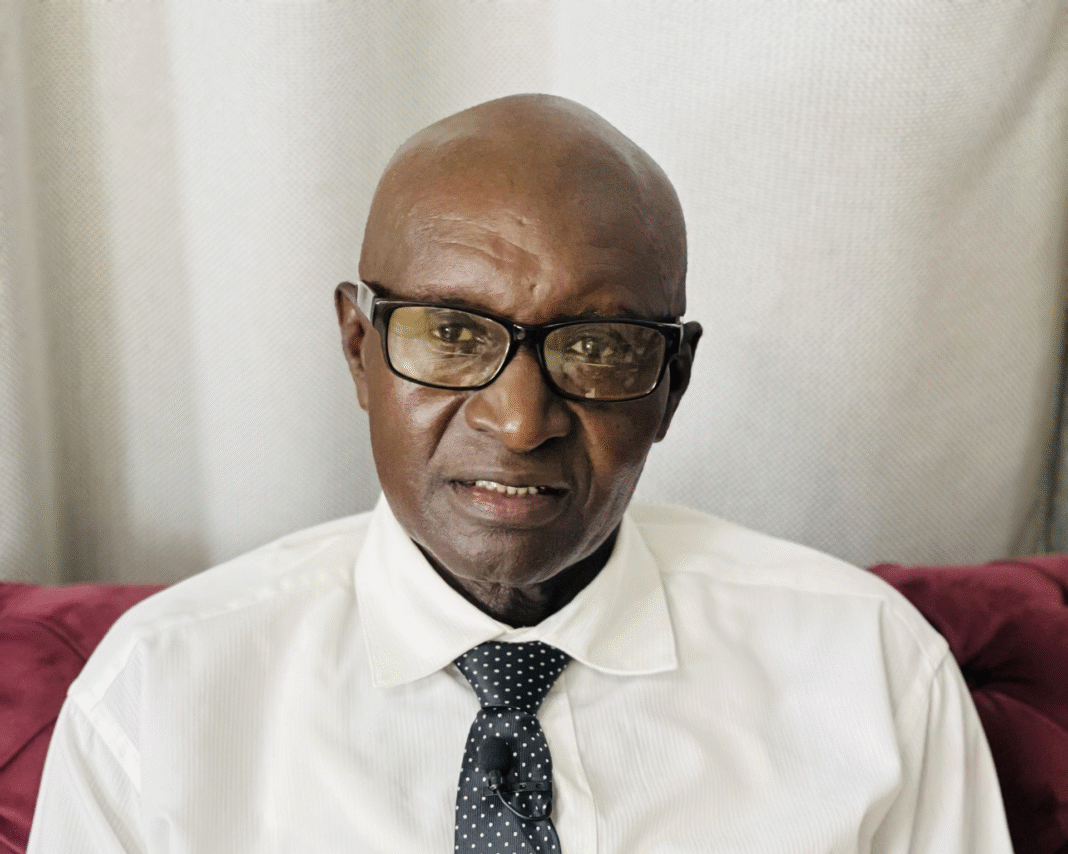
The political temperature in The Gambia has once again begun to rise, following a dramatic announcement by Hon. Momodou Yafaye Tamba, claiming the mandate of none other than former President Yahya A.J.J. Jammeh. In a press release dated November 3rd, 2025, Hon. Tamba, speaking with an air of diplomatic civility rare among Jammeh’s loyalists, reiterated the exiled leader’s “unequivocal intent and sincere desire to return peacefully to the Republic of The Gambia” before the end of November.
The message, strikingly polished and reconciliatory in tone, was addressed with deference to President Adama Barrow and the Speaker of the National Assembly, an extraordinary courtesy coming from a man who once thundered that he would “rule The Gambia for a billion years.” Copies, we are told, will be shared with ECOWAS, the African Union, the United Nations, and all diplomatic missions in Banjul. Never before has Jammeh, or his camp, spoken with such restraint and apparent humility.
Yet beneath this velvet rhetoric, the Gambian public remains torn between hope and hesitation, forgiveness and fear. Old wounds are easily reopened, and the air is once again thick with speculation and uncertainty.
To complicate matters, an old audio recording, whose date and origin remain unclear, is now making the rounds on social media. In it, Jammeh can be heard, with his familiar fiery conviction, warning President Barrow that he would soon return to “show him who owns The Gambia.” The tone was unmistakably menacing. Unfortunately, it appears that President Barrow’s latest comments at his Sukuta rally were more in response to that old militant Jammeh than to the new conciliatory Jammeh projected by Hon. Tamba’s press release.
If indeed Jammeh has turned a new page, seeking peace rather than vengeance, then the President must learn to distinguish between the echoes of the past and the signals of the present. Leadership demands discernment, not reactionary posturing.
But let us step away from the noise of politics and look at the matter through the clear lens of law.
The question is simply whether Yahya Jammeh has the right to return to The Gambia?
The answer is certainly, yes.
The Constitution of the Republic of The Gambia grants every citizen the inalienable right to return to their homeland. This right is neither conditional nor revocable by executive displeasure. Yahya Jammeh, despite his past excesses, remains a Gambian citizen, and that citizenship carries with it certain immutable protections.
President Barrow and his government must therefore tread carefully. The findings and recommendations of the Truth, Reconciliation and Reparations Commission (TRRC) cannot be used as legal grounds to bar Jammeh’s entry or to arrest him upon arrival. The TRRC was a truth-seeking body, not a court of law. It lacked judicial authority, procedural rigor, and the evidentiary balance necessary to convict anyone.
As one who also suffered from the TRRC’s tendency to condemn without hearing the accused, I can personally attest to the danger of such unilateral conclusions. The government’s own White Paper later dismissed the Commission’s findings against me precisely because I had been denied the fundamental right to defend myself. The same principle must apply to Yahya Jammeh. Justice without fairness is tyranny in another form.
Still, while I affirm his right to return, I remain unconvinced that The Gambia is politically, emotionally, or institutionally ready for his arrival. The wounds of his 22-year rule, though scabbed over, have not fully healed. His name still divides families, fuels passions, and evokes memories many would rather forget.
Jammeh’s sudden softening, therefore, must be viewed with cautious optimism. There are whisper, credible insinuations, that his host country, Equatorial Guinea, has grown weary of the prolonged arrangement. What began as a six-month exile has stretched into nine long years of isolation. Now, perhaps, patience is wearing thin.
Meanwhile, some of his fervent supporters have taken to the streets, selling uniforms and organizing a premature “welcome home” celebration. Such enthusiasm, though understandable, borders on recklessness. If Jammeh himself denied the late Sir Dawda Jawara a ceremonial reception upon his return, it would be naïve to expect President Barrow to permit one for him.
Then there is the curious matter of delegation. If Jammeh truly intends to return, why entrust such a historic announcement to Hon. Momodou Yafaye Tamba, a relatively obscure emissary? A message of such magnitude should have borne Jammeh’s own signature, not that of a messenger. For those of us who worked closely with him, it is no secret that Jammeh often distances himself from his envoys when things go unsatisfactory, This could easily be another case of testing the waters before taking the plunge.
If Yahya Jammeh seeks true redemption, let him begin not with declarations but with humility. Let him address the Gambian people directly, apologize for his past excesses, and ask for understanding. Only then will his talk of peace carry the ring of sincerity.
But if he continues to hide behind intermediaries while sending mixed signals of defiance and repentance, the people will rightly question his motives. The Gambia cannot afford another cycle of confusion and confrontation.
Whether Jammeh returns this November or not, it is undeniable that his credibility now hangs in the balance.
Coming home could be his redemption, or his reckoning. Staying away could preserve his comfort but erode his relevance.
Nine years in exile, cut off from power, surrounded by silence, should have taught him that real strength lies not in the ability to command fear, but in the courage to seek forgiveness. Whatever path he takes, Yahya Jammeh’s legacy will no longer be measured by his proclamations from afar, but by whether he finally comes home, and how he faces the nation he once ruled with an iron hand.
By Lt. Col. (Rtd) Samsudeen Sarr


